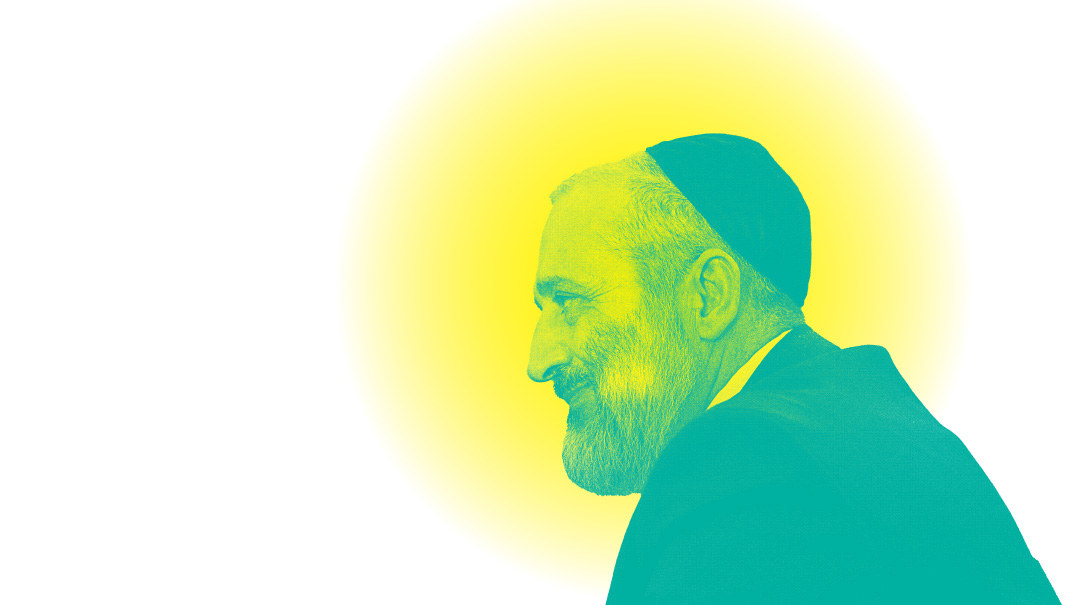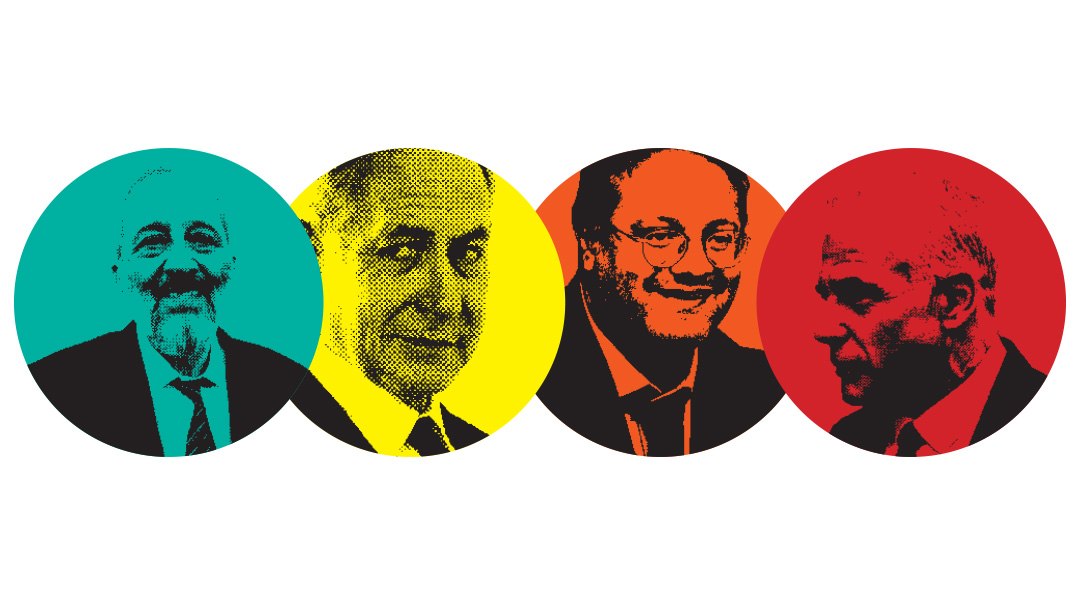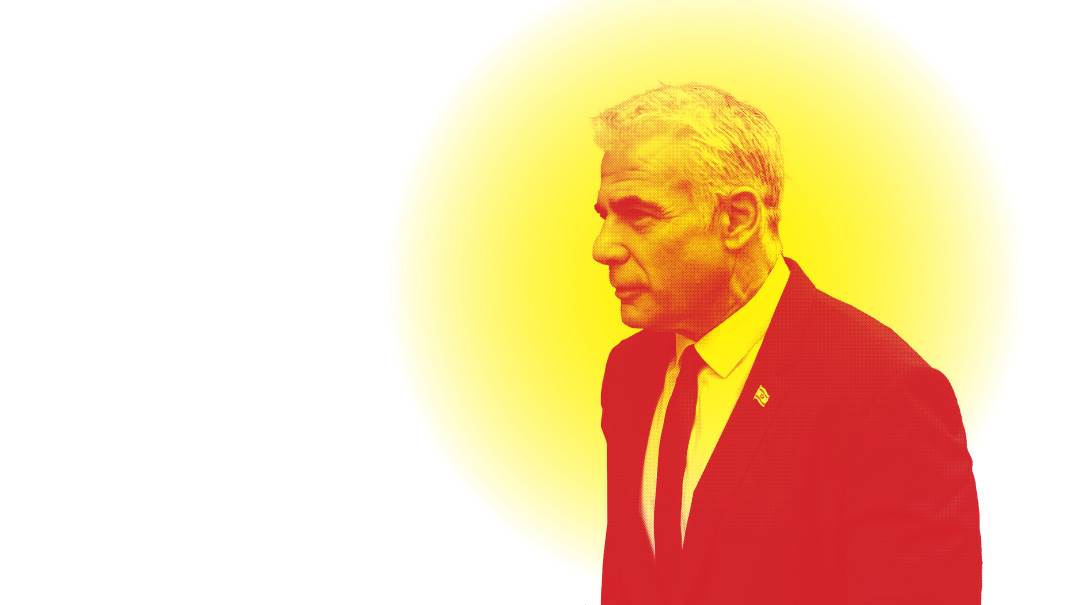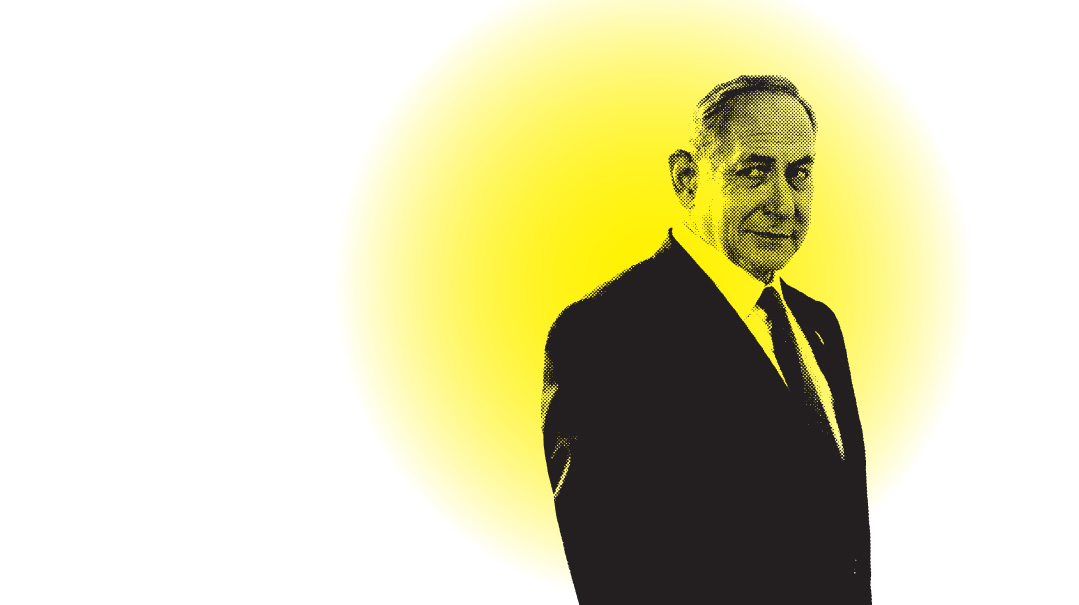The Lion Roars Back

Like a phoenix rising from the ashes, Shas has stormed back, jumping from nine to 11 seats in the elections

A man walks into an Israeli polling station, takes a blue envelope, and heads behind the partition. With his jeans, polo shirt, and bare head, he could be any secular, middle-class Israeli, but his darker skin hints to a Sephardic background.
His fingers hover over the white voting slips. “Shas” reads one, but the man continues as if unsure, glancing first at the “Machal” of the Likud, and “Tes” of Itamar Ben Gvir.
He rubs the back of his head, and raises his hand to his face, thinking, before stretching out to grab the Ben Gvir option.
Suddenly music plays and a spectral apparition of Rav Ovadiah Yosef appears. Shocked, the man blurts out, “Kevod Harav!”
The voter spills his story of being torn between Shas and other right-wing parties, to which Rav Ovadiah responds in loving tones.
“My son, listen to me, I want what’s good for you in This World and the Next. Our entire purpose is to do the Will of Hashem, to strengthen emunah, to strengthen the mitzvot. Vote for Shas!”
The man takes a Shas slip, and placing his hand over his head like a kippah, sends the envelope into the blue ballot box.
Released days before last week’s seismic elections, the above video clip — which like much of Shas’s slick campaign went viral — is a good starting point to understand the meteoric comeback of the Shas party and its leader, Aryeh Deri.
Just a few years ago, Shas was derided as a has-been. Riven by internal rivalries, bleeding voters to the Likud, and — in the wake of Rav Ovadiah’s passing — bereft of its giant founder, the party seemed destined to be relegated to the status of a Sephardi version of the Agudah-Degel tie-up.
But like a phoenix rising from the ashes, Shas has stormed back, jumping from nine to 11 seats in the elections — even while fending off the encroachment of Itamar Ben Gvir’s party. The 390,000 voters that the party attracted almost match the record from 1999, when a black-bearded Deri led Shas to 17 Knesset seats.
Like the fictional voter of the party’s digital campaign, many former Shas supporters — those swayed by the siren song of the other right-wing parties — found themselves voting Rav Ovadiah inside the polling booth.
Shas’s call to protect both the country’s Jewish traditions and voters’ pocketbook amid an economic storm was a savvy combination that resonated across broad swathes of the electorate.
More than anything, the party’s comeback is a vindication for one man — Aryeh Deri. Having dragged Shas back from its electoral death spiral, his strategy of positioning Shas at the heart of Netanyahu’s coalition has paid off.
In the process, he’s rebuilt his own once-battered reputation, emerging as a level-headed statesman and the second-most powerful politician in Israel after Netanyahu.
“Even beyond his role as the linchpin of the right,” argues Yaakov Rivlin, a leading chareidi political commentator and expert on the Shas movement “Deri’s greatest achievement is his emergence as the central figure of the Sephardi world. Even after the deaths of Rav Ovadiah and Chacham Shalom Cohen, Deri was able to bring all the lost voters — from traditional to chareidi — back to Shas, because he himself is now the brand.”
Bibi or Bust
It was 2019, and election fever was in the air in the first of five rounds of elections pitting the pro- and anti-Bibi camps against each other.
The campaign was taking place against the background of Netanyahu’s court case, and as Israel’s longest-serving prime minister wrestled with the judicial establishment, right-wing voters rallied round the flag. Shas supporters threatened to abandon their party in droves to save Bibi, and Deri knew that he needed a bold stroke to stanch the hemorrhage.
A clever advertising campaign was the answer.
“Bibi needs a strong Aryeh,” read the giant billboards across the country, playing on Deri’s name and its leonine connections. Featuring Deri and Bibi on a background of black-and-yellow Shas colors, the ads, says Yaakov Rivlin, contained a simple message.
“Vote Shas — and you’ll get Bibi, plus.”
“The strategy worked,” Rivlin explains “because Deri hugged Bibi tight and stole his wallet too, taking seats off of the Likud. In fact, if the voting system today was as it had been back in 1999, with a double ballot vote for party and prime minister, Shas would have doubled their share of the vote.”
Deri’s bet on a long-term alliance with the right is the first plank of his strategy to have been vindicated. With Bibi holding power for over a decade straight, swearing fealty to the Likud was good politics — until the repeat-elections crisis.
Beginning in April 2019, from one round of elections to another, voters failed to break the deadlock, and calls mounted for the chareidi parties to break ranks with Bibi, and ultimately the right.
Those voices crescendoed after Naftali Bennett’s surprise alliance with the left brought a motley left-right-Arab coalition to power, leaving the chareidi school system out in the cold, starved of government funding with the chareidi parties out of power.
But while mutinous rumbles were heard from the direction of the Ashkenazi UTJ party, with Degel HaTorah leader Moshe Gafni openly floating the possibility of breaking with Bibi if he failed to win the fifth time around, Shas under Deri remained defiantly pro-Netanyahu.
Like a lion on the prowl to defend its territory, Deri emerged as the pack leader in the effort to keep the pro-Netanyahu bloc together. While Likud MKs lost faith in the possibility of a comeback, the Shas leader led the fightback in the Knesset plenum, snapping and snarling at the coalition’s heels in all-night efforts to exhaust the Bennett government and frustrate its legislative program.
At the same time as holding the right-religious bloc together in exile, Deri worked — guerilla-style — to snatch opposition figures and erode the coalition’s wafer-thin majority. That effort paid off last Pesach, when coalition chief Idit Silman dramatically crossed the lines, effectively ending Bennett’s premiership and triggering a countdown to elections.
Such was Deri’s effectiveness in the role of pack leader that by the time the fifth election campaign kicked off this summer, voters needed no reminding that a strong Aryeh meant a strong Bibi.
Young Guard
A few weeks before Israel’s fourth elections early last year, I found myself inside the Knesset, which was still swaddled in pandemic-era plastic sheeting, for an interview with the Shas young guard.
What I called “Generation Shas,” these were three products of Rav Ovadiah’s Torah revolution who’d come of age:
Michael Malkieli, who was transfixed as a child by Rav Ovadiah’s legendary shiurim in Jerusalem’s Moussaieff shul; Moshe Arbel, from middle-class Petach Tikvah, went to local yeshivos while maintaining a similar Shas family affiliation, before rising through the ranks as Aryeh Deri’s chief of staff; and Yossi Tayb, raised in Sarcelles, a Parisian suburb, joined Rav Ovadiah’s live-streamed shiurim as they were beamed into France in the ’90s.
The interview provided a view into the lives of three dynamic politicians learning the parliamentary ropes. But the conversation also raised serious questions about Shas’s future.
Why, I wondered, had Shas seemingly retreated from its economic agenda of helping Israel’s struggling lower classes, instead pushing a campaign of fealty to Torah and tradition? The fact that Deri had recently spearheaded a giant NIS 700 million poverty relief program was barely reflected in the Rav Ovadiah-heavy campaign.
The party’s struggles also seemed to be a product of Deri’s manpower choices. After retaking the reins from Eli Yishai, he brought in a young guard with two characteristics: personal fealty to Deri as party boss and black-and-white products of the yeshivah system.
Gone were politicians like Danny Saida, a bluff farmer from the Galil who was as an MK until just three years before.
“Deri has turned the party into something sectoral, for Sephardi bnei Torah, and for traditional Israelis who benefit directly from that world,” I quoted Yossi Elituv, editor of Mishpacha’s Hebrew edition and a longtime Shas observer. “But the party no longer has any message for the traditional public.”
What a difference 18 months — and an election or two — can make. Deri’s choice to refresh the ranks seems to have been vindicated as his young guard campaigned up and down the country.
The party’s slick digital campaigns — the brainchild of young media advisors — emerged as stars of this election season, and evidence of the party’s young spirit, which a 63-year-old Deri seems to share.
And with cost of living a major issue for Israelis amid price hikes on basics rooted as much in heavy-handed environmental legislation as global inflation, Shas rediscovered its economic-policy mojo.
“Millions of Israelis are starving for change,” read one effective attack ad.
The Influencers
Selichos, not elections, was in the air when I visited Rav Reuven Elbaz, the rosh yeshivah of Ohr Hachaim, confidant of Rav Ovadiah Yosef, and Israeli kiruv legend, in the run-up to Rosh Hashanah.
Despite the impending elections and Rav Elbaz’s seniority within Shas, politics wasn’t on the agenda.
So, I didn’t get to ask what was on my mind: As one of the fathers of the Israeli teshuvah movement, how could Rav Elbaz simultaneously advocate for a political party, when — in an Israel sharply divided over religious issues — that risked alienating those potentially interested in discovering more about their roots?
The lineup of a new generation of kiruv mega-stars indicates that for Rav Ovadiah’s party, the question is a non-starter — a fact that helps to define Shas.
Rabbi Zamir Cohen, founder of the well-known Hidabroot TV channel, which is dedicated to outreach, headed the lineup of kiruv heavyweights at an event in Ramle that drew 5,000 participants. Alongside him were Rabbis Yigal Cohen and Snir Guetta, the latter a young soccer star-turned mashpia. Each of the three have about a quarter-million followers online, and their “influencer” status played a role in bringing young, first-time voters into Shas’s orbit.
The seamless marriage of Torah, outreach, and politics that typifies the Shas world is what makes the party — like its Ashkenazi cousin, UTJ — a broad movement, not just a political vehicle for funding.
It’s a movement that builds schools, which will fill yeshivos, that in turn create rabbanim, who go on to teach hundreds of thousands of traditional Israelis, who will in turn send their children to Shas schools.
Founding Vision
When Aryeh Deri first made it into the Knesset in 1988 as a political whiz-kid, power broker, and then the country’s youngest minister, it was under Rav Ovadiah’s slogan “To Return the Crown to Its Glory,” a call for teshuvah across the Sephardic world.
Thirty-five years later, with Shas’s ranks swelled by graduates of the schools and yeshivas that the movement’s funding enabled, it seems that both the movement and Deri, its founder, have found a second youth as the country’s religious right grows.
“Deri brings to the table charisma and the ability to read the political map, and these two have come to define his ability to stay at the top of Israeli politics,” says political commentator Yaakov Rivlin.
“But what these fifth elections have taught more broadly about Israeli society is what Shas has been saying — that vast swaths of Israeli society are no longer in thrall to the secular parties.”
(Originally featured in Mishpacha, Issue 935)
Oops! We could not locate your form.





